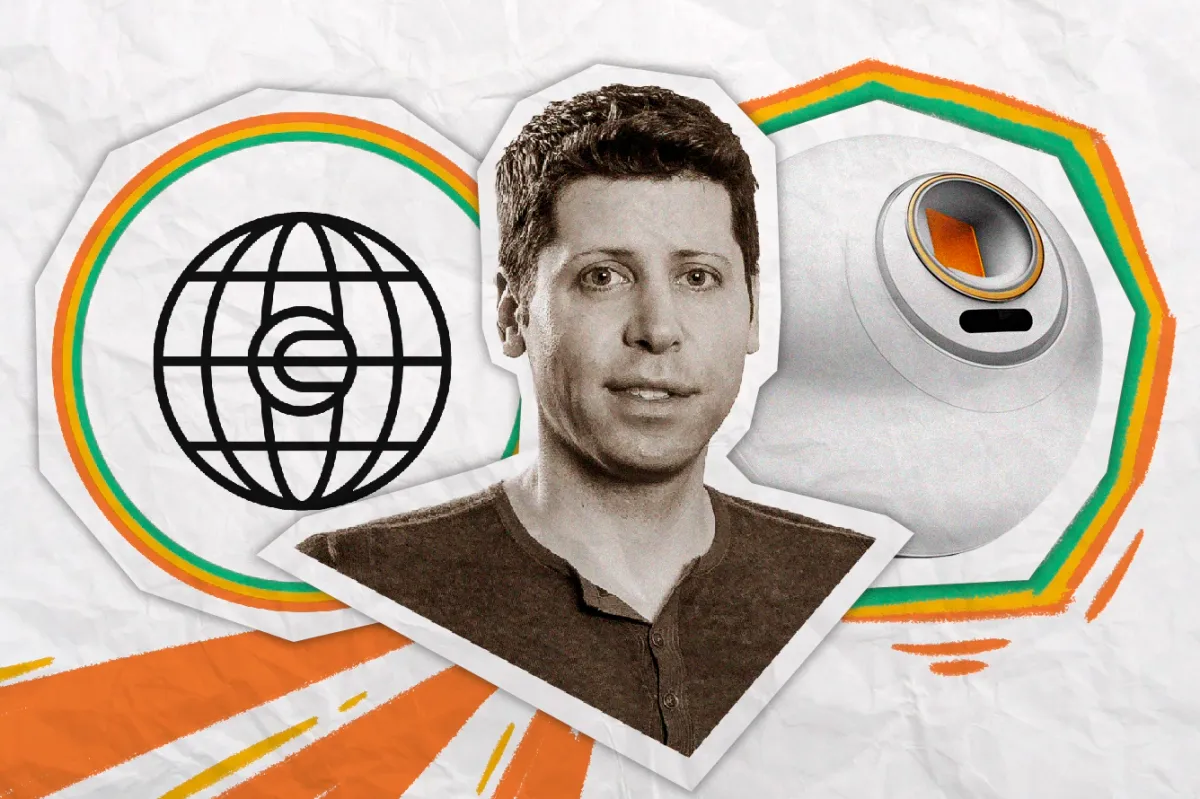
The war against bots has a new bunker blockchain.
Humanity verification protocol Worldcoin announced last week that it will be migrating to a dedicated layer-two Ethereum chain by the end of summer.
The project, co-founded by ChatGTP’s CEO Sam Altman, is currently hosted on OP Chain, where it is responsible for 44% of total network activity. According to the official announcement, “Given the scale and growth rate of the community, it is time to graduate to a dedicated network.”
The proof-of-personhood (PoP) initiative boasts over 10 million users. Half of them have verified their identities by scanning their iris in Worldcoin specialized hardware “Orbs,” which are spread in cities all across the globe.
The project’s team hopes everybody on Earth will one day have a WorldID passport, allowing them to prove their real identity online. World Chain, the L2 scaling solution announced on April 17, is Worldcoin’s effort to create a network capable of handling the activity of all future users on all possible use cases.
The new blockchain will be integrated into the Superchain system. It will give priority to verified users, only handling transactions of bots and non-certified humans after the needs of the former have been attended.
Being able to scale efficiently and without congestion bugs is a legitimate necessity for a project that aims to onboard all humans on Earth. Yet, the timing of the announcement of World Chain begs the question: Is Worldcoin getting too big or too cornered?
Since launching in July 2023, Worldcoin has faced many setbacks and criticism. Rather than fading away as the project grew, these issues have intensified.
The most significant challenges the PoP project has faced were thrown at it by national governments. Soon after its international release, authorities in Kenya forbade the iris-scan collection of Orbs and seized the company’s hardware. Authorities in Argentina, Germany, and France have opened investigations into the biometric data collection process of Altman’s passion project.
As recently as last month, the data protection agencies of the Mediterranean nations of Spain and Portugal have put temporary bans on the operations of Orbs. The latter country was one of Worldcoin's testing locations, and it is where most WorldIDs have been created.
Worldcoin problems go beyond its issues with governments and include criticism from privacy and economics experts, technology shortcomings, and increased market competition.
Even before its launch, the human verification initiative received a negative review from MIT. It claimed that through deception, exploitation, and cash handouts, Worldcoin built "a biometric database from the bodies of the poor.”
Soon after it was out, Ethereum co-founder Vitalik Buterin joined a chorus of privacy enthusiasts who criticized the project's "guarantee" of the protection of users' identities. Now, matters have even gotten worse as artificial intelligence gets better. Like bots, deep fakes are blowing up, and they can be used to trick Worldcoin identity verification mechanisms.
Last but not least, the project is facing growing competition from very well-positioned enterprises.
Last week, TON announced a partnership with Human Code to launch a palm-recognition humanity verification tool on its blockchain and a $5 million fund to incentivize users to adopt it. Contrary to Worldcoin, which is building its network from the ground up and counting on partnerships to expand the use cases of WorldId, TON’s new tool is already available to 900 million Telegram users.
The CEOs of Polygon blockchain and gaming giant Animoca Brands are also backing a rival palm-based identity verification initiative called Humanity Protocol. The project, announced in February 2024, is yet to be launched, but when it does, it can immediately be integrated into enterprises with considerable-sized networks.
Worldcoin is also finding competition in humanity verification solutions such as Gitcoin Passort, Zorro, and Proof-of-Humanity, which don’t rely on biometric data.
With governments, experts, and market players all posing challenges to Worldcoin, the goal of the project to become a global identity network seems even further away than it was when the protocol was released last July.
The launch of the Ethereum layer-two proprietary blockchain is factoring that network effects kick in soon. Yet, while it boasts a dynamic adoption rate, on average, each user made only about 7.5 transactions. Apart from a couple of Discord and Reddit channels, Worldcoin is still trying to find a breakthrough actual use case that will propel activity.
Amidst all the existential challenges Worldcoin is facing, the need to have a proper scaling solution seems more an excuse to remain relevant than a need in itself.

